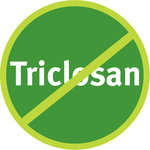Dioxin from antibacterial soap contaminating river

University of Minnesota researchers have found dioxins derived from a common antibacterial hand soap additive in Mississippi River sediments. Triclosan is added to approximately 75 percent of soaps and other consumer products as an antibacterial agent. (Plain soaps, i.e. ones that do not claim to be antibacterial, do not contain triclosan.) The additive breaks down in water and sunlight into forms of dioxin that are building up in the environment, even as other forms of dioxin are declining. Read the full Minnesota Public Radio story.
For a list of products containing triclosan and alternatives, please visit the Environmental Working Groups triclosan page.